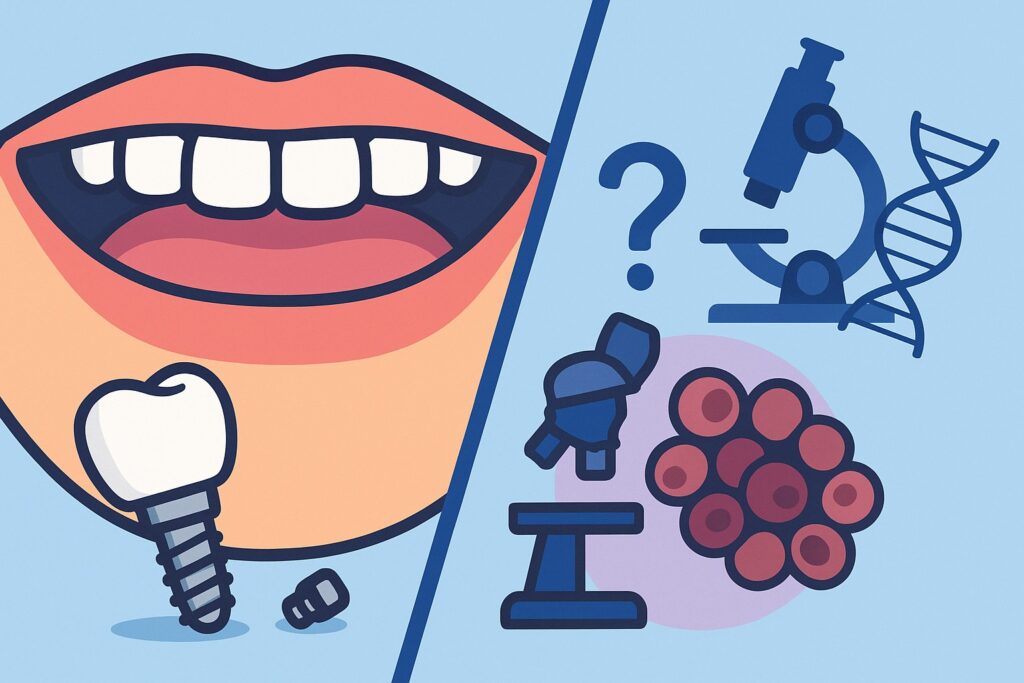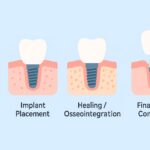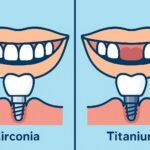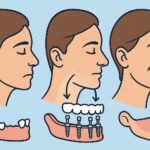Dental implants have become a trusted solution for replacing missing teeth, offering both strength and a natural appearance. Despite their success, some patients express concern about whether placing metal or ceramic materials in the body could increase the risk of cancer. These worries are understandable, given the rising awareness of how long-term exposure to certain substances can affect health.
The question of whether dental implants can cause cancer has been studied extensively in medical and dental research. Looking at the available evidence helps separate myths from facts and provides reassurance about the safety of implants.
What Dental Implants Are Made Of
Dental implants are designed to be biocompatible, meaning they can safely integrate with the body without causing harm. The two most common materials are:
- Titanium and titanium alloys: Titanium has been used in medicine for decades, not just in dentistry but also in orthopedic and surgical implants. It is non-reactive, resists corrosion, and bonds strongly with bone.
- Zirconia (ceramic): A metal-free option, zirconia is highly durable, tooth-colored, and completely non-metallic, making it suitable for patients with metal sensitivities.
Both materials are chosen because they do not break down in the body or release harmful substances. Importantly, neither titanium nor zirconia has been proven to cause cancer in humans.
Research on Dental Implants and Cancer Risk
Extensive research has been carried out to investigate any possible link between dental implants and cancer. The results consistently show no evidence that implants cause cancer.
- Titanium safety: Titanium has been studied for decades in medical implants such as hip replacements and dental implants. Research shows it is stable in the body and does not trigger cancer development.
- Zirconia implants: As a ceramic, zirconia is inert and shows no carcinogenic potential in clinical studies.
- Scientific reviews: Large-scale studies and systematic reviews published in dental and medical journals conclude that there is no increased cancer risk for patients with dental implants compared to those without.
On rare occasions, isolated reports describe local tissue irritation or allergic reactions to metal particles, but these are not linked to cancer formation. Overall, the evidence strongly supports the long-term safety of dental implants.
Why the Concern Exists
Concerns about cancer and dental implants often come from misunderstandings about how metals behave in the body. Some patients worry that because titanium is a metal, it might corrode, release particles, or trigger harmful changes in nearby cells. While microscopic wear particles can occasionally be detected, studies show they do not cause cancer.
Another source of fear is the confusion between allergic reactions and cancer risk. A small percentage of patients may develop sensitivity to certain metals, which can cause inflammation or discomfort. However, these reactions are immune-related and have no connection to cancer development.
The persistence of these misconceptions highlights why clear communication from dentists and medical professionals is essential to reassure patients about the safety of implants.
Expert Consensus on Implant Safety
Dental and medical organizations worldwide agree that dental implants are safe and not associated with cancer risk. Titanium and zirconia have both been extensively tested in clinical practice and scientific studies, showing excellent long-term success rates.
The American Dental Association (ADA), World Health Organization (WHO), and numerous peer-reviewed studies support the use of dental implants as a reliable treatment for tooth replacement. Dentists and oral surgeons continue to recommend implants because the benefits—restored function, improved oral health, and long-lasting stability—far outweigh minimal risks such as infection or rare allergic reactions.
Simply put, the scientific and medical community does not recognize dental implants as a cancer risk. They remain one of the most predictable and safe restorative options in modern dentistry.
Conclusion
Dental implants are made from biocompatible materials like titanium and zirconia, both proven safe for long-term use. Extensive research shows no link between dental implants and cancer, and health organizations worldwide confirm their safety. While rare cases of irritation or sensitivity can occur, these are not related to cancer risk.
For patients considering implants, the evidence is clear: dental implants remain a safe, effective, and widely trusted treatment for replacing missing teeth. Concerns about cancer should not stand in the way of choosing this proven solution.






